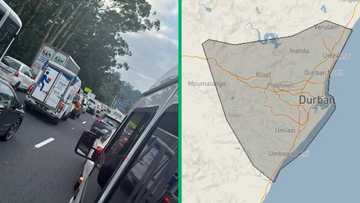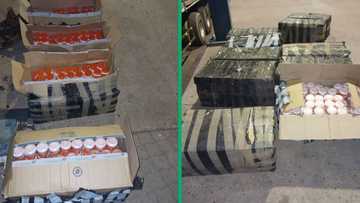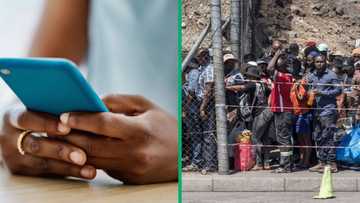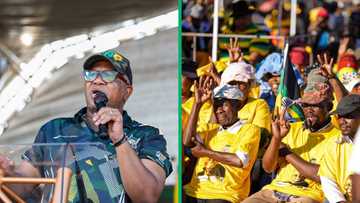Warning of Possible Unrest During Elections Is Just a Routine Risk Assessment
- FirstRand Banking Group clarifies leaked memo warning of potential social unrest ahead of 2024 elections as routine risk assessment, not a forecast
- Memo highlights medium-risk security notice, potential protest actions by MK Party linked to dissatisfaction over former President Zuma's ineligibility
- The proactive approach aims to equip entities for potential disruptions, reflecting lessons from the 2021 riots
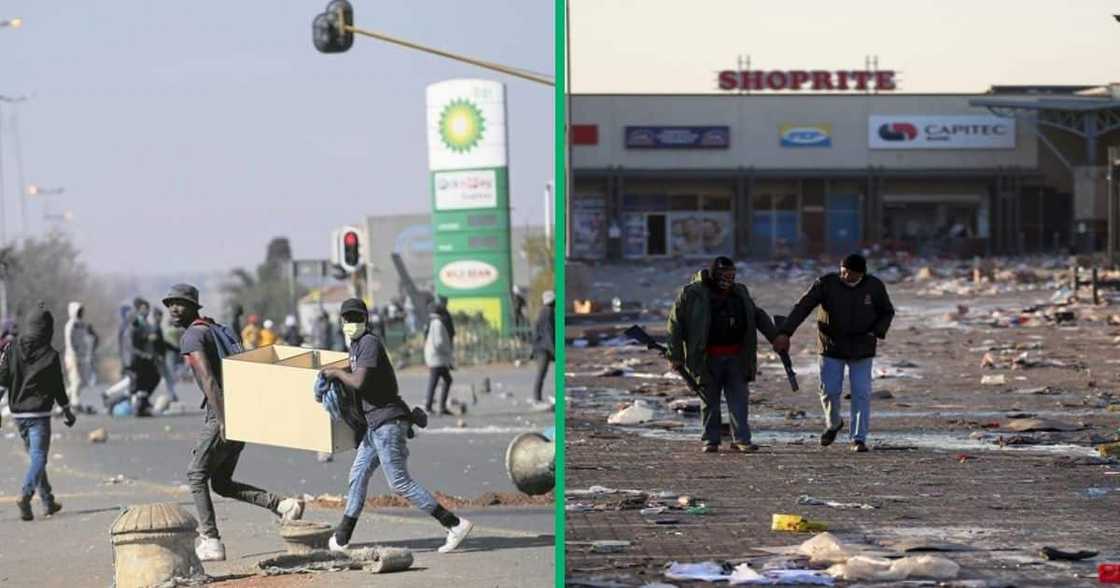
Source: Twitter
The company emphasized that the memo was a routine risk assessment rather than a forecast or baseline expectation.
The memo initially calculated
The memo circulated among FirstRand's various operating entities, including First National Bank, WesBank, and Rand Merchant Bank, outlined a medium-risk security notice.
See the memo in a post below:
PAY ATTENTION: stay informed and follow us on Google News!
It specifically mentioned the possibility of protest action by the uMkhonto we Sizwe Party (MK Party) during May and June.
This anticipated unrest is linked to dissatisfaction with former President Jacob Zuma’s ineligibility to run for Parliament in the upcoming elections following his recent contempt of court conviction.
According to the leaked document, first reported by EWN, KwaZulu-Natal is identified as a hotspot for potential unrest due to its substantial support for both Zuma and the MK Party.
Other regions with heightened risk include parts of Gauteng and Mpumalanga.
The memo warns of potential activities such as intimidation, malicious damage to property, arson, road barricades, looting, hijacking of trucks, and clashes between MKP supporters and other political factions or authorities.
Clarification of the memo
However, FirstRand quickly clarified to BusinessTech that the memo should not be interpreted as a predictive document but as part of the bank’s standard risk monitoring processes.
“The group’s security team issued an internal note as part of its normal risk monitoring processes. Large financial institutions like FirstRand must constantly monitor emerging risks within their operating environment as part of their responsibilities for contingency planning.”
The spokesperson further explained that these assessments are routinely shared with operating entities to ensure that frontline staff are informed and prepared to maintain business continuity under various adverse scenarios.
“This note was an outcome of this process and does not present a forecast of the baseline expectation."
High-risk areas identified
The memo identified several high-risk areas, particularly regions with solid support for Zuma.
These include KwaZulu-Natal, Gauteng, North-West, the Free State, Northern Cape, and Mpumalanga.
Strategic locations such as city halls, ANC head offices, and government buildings were flagged, along with major roads like the N3 between Durban Central and Harrismith and the N2 between Mtubatuba and Port Shepstone.
FirstRand’s proactive approach reflects lessons learned from the 2021 riots, underscoring the importance of preparedness in the face of potential disruptions.
The group’s continuous risk assessment aims to equip its entities to navigate and respond effectively to any unrest that may arise, ensuring the stability and security of its operations and services.
South Africans disagree with the memo
Despite the routine warning, South Africans seem focused on other things. They also warned that the memo was spreading fear across the country.
@mgxekwa said:
"The banks are fear-mongering and displaying "swart gevaar" [beware of blacks] behaviour."
@SpheKaNtando
"Johan Rupert is trying to influence the elections through fear-mongering. The MK is a peaceful organisation, with high discipline and high morale."
@iRieRastaZa added:
"Preempting and planning is good but making it public is providing a plan to those who have none."
@Smokey058 said:
"Fear mongering, on what basis and information was this deduction made? Or is it just white fear of a black party doing well in the elections?"
@Sicelo_702black commented:
"The banks are being proactive. They now understand how serious Zuma's tantrums can get when things don’t go their way."
Concerns over more unrest arise as government tries to heal communities impacted by violence
Previously, Briefly News reported that on 9 July 2021, SA was rocked with widespread protests that led to the destruction of property and looting.
The riots were sparked by the Constitutional Court sentencing former President Jacob Zuma to 15 months in prison.
On 9 July 2021, South Africa was rocked with widespread protests that led to the destruction of property and looting. The riots were sparked by the Constitutional Court sentencing former President Jacob Zuma to 15 months in prison.
PAY ATTENTION: Follow Briefly News on Twitter and never miss the hottest topics! Find us at @brieflyza!
Source: Briefly News

